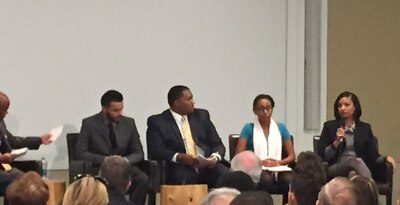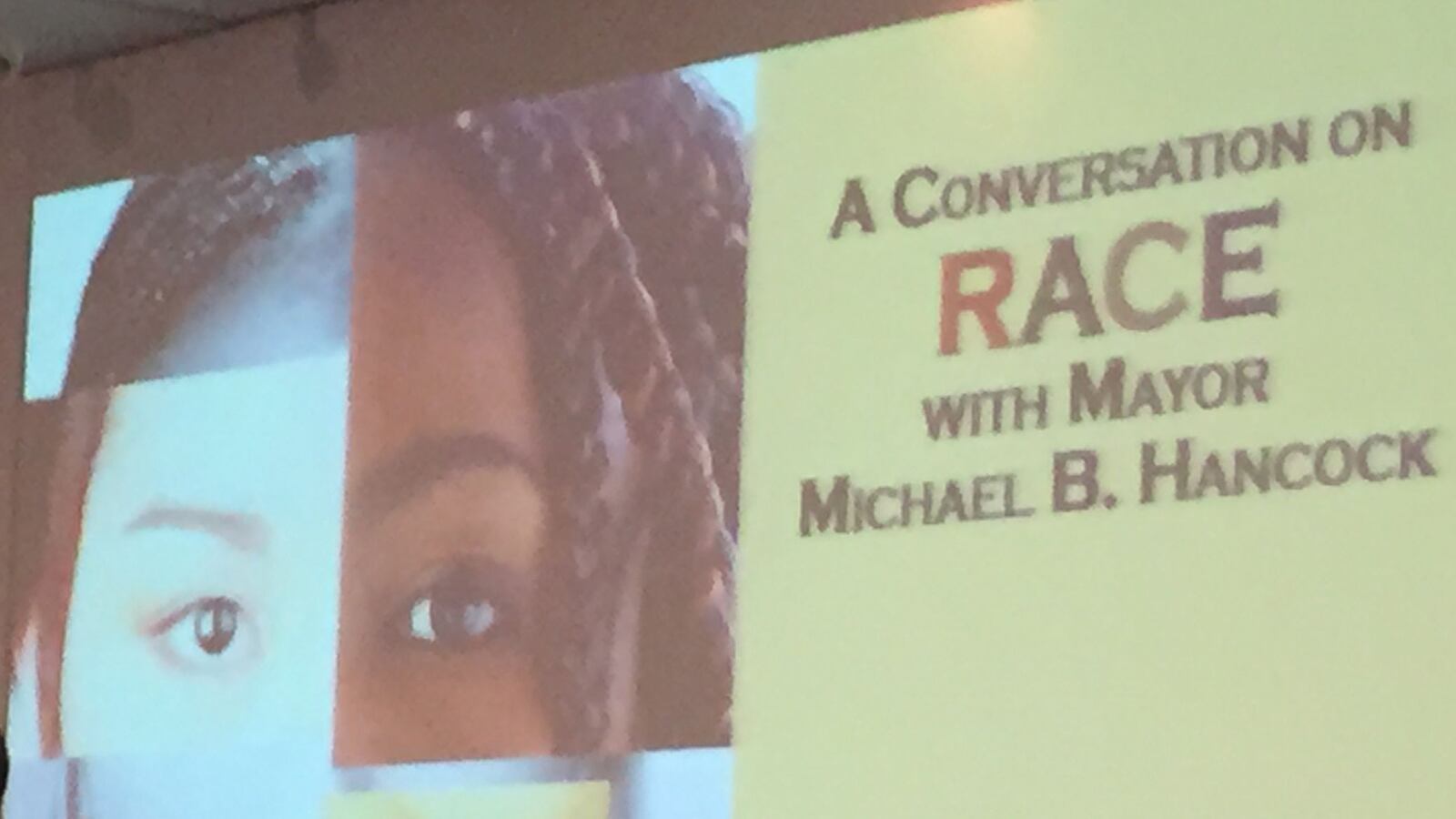Denver Mayor Michael Hancock hosted the first in a planned series of conversations about race this afternoon at the History Colorado Center.
After Denver students across the city organized protests focusing on police brutality and race earlier this month, both the mayor and the Denver Public Schools announced plans to host conversations about the issues students raised. Students at more than 30 schools across the city walked out of class to contest two separate grand jury decisions that chose not to indict police officers who killed African-American citizens.
Today’s event touched on topics ranging from bias among police to the role of the media to how the city can improve race relations.
The mayor directed several questions at the panelists and audience and then invited the audience to make comments and ask questions. “Why has the ‘hands up, don’t shoot’ protests turned into a movement? Has it turned into a movement?” “What’s the role of the media in conversations about race?” “What one lesson would you share with the academy class [of new police officers]?”
Police chief Robert White said that a lack of positive relationships between communities and the police underlies some of the current issues. “We have to come together and figure out, how do we do this together…and come through these healing processes together?”
DPS board president Happy Haynes said that during the protests, media too often focused on adults rather than what was on students’ minds and what prompted the protests.

One panelist, a student at Denver School of the Arts who is a member of the mayor’s initiative on youth, said that she is now organizing a club focused on social injustices.
Another student panelist said that students want change, and that they would like more opportunities to interact with police.
Students wearing hoodies from KIPP, a charter school, asked the mayor what the intended goal and next steps would be.
“I hope the clarion call after today is that the entire community must lead,” Hancock said. “Denver has made a lot of progress but there is a long way to go.”
Hancock said there will be two more events in January and others later in the year, leading up to a citywide summit.


